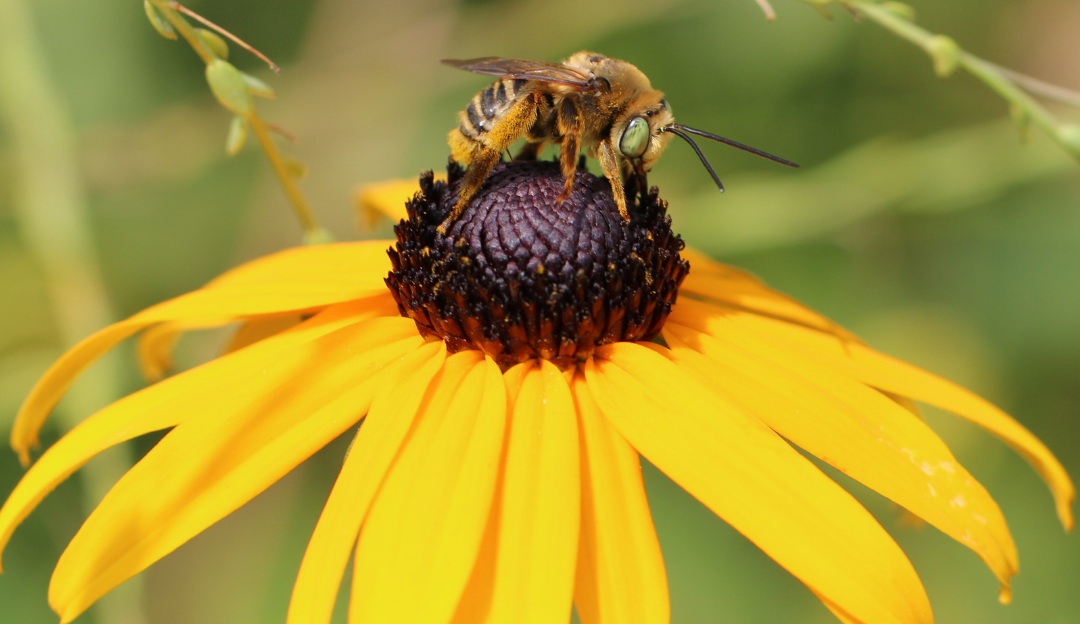Colorado Mesa University (CMU) has become an affiliate of the Bee Campus USA program, designed to marshal the strengths of educational campuses for the benefit of pollinators. CMU is the second university in Colorado to become a bee campus and joins the total of 431 city and campus affiliates across the country.
As a designated Bee Campus, CMU is committed to minimizing hazards to pollinators by using nearly no neonicotinoids or other potentially dangerous pesticides. The university is also exploring ways to introduce more native plants, bees and butterflies to campus.
“CMU’s longstanding designation as a Tree Campus aligns with our new status as a Bee Campus,” said CMU President John Marshall. “From our sustainable agriculture program to the groundbreaking research that won CMU the X Prize, our campus community is pleased to make specific contributions to supporting a campus environment that reflects our values.”
Bee City USA and Bee Campus USA are initiatives of the Xerces Society for Invertebrate Conservation, a nonprofit organization based in Portland, Oregon, with offices across the country. Bee City USA’s mission is to encourage communities and campuses to sustain pollinators by providing them with a healthy habitat, rich in a variety of native plants, and free of pesticides. Pollinators like bumble bees, sweat bees, mason bees, honeybees, butterflies, moths, beetles, flies, hummingbirds and many others are responsible for the reproduction of almost 90% of the world's flowering plant species and one in every three bites of food we consume.
“The program aspires to make people more pollinator conscious,” said Xerces Executive Director Scott Hoffman Black. “If lots of individuals and communities begin planting native, pesticide-free flowering trees, shrubs and perennials, it will help to sustain many, many species of pollinators.”
Bee Campus USA affiliates have the flexibility to tailor their pollinator conservation efforts to their strengths and resources.
“How each city or campus completes the steps to conserve pollinators is up to them,” said Bee Campus USA Coordinator Laura Rost. “Affiliates play to their own strengths, designing pesticide reduction plans, improving habitat and holding events ranging from garden tours to native plant giveaways to bee trivia nights. Each campus must renew their affiliation each year and report on accomplishments from the previous year. Other institutions of higher education are invited to explore completing the application process outlined on the Bee City USA website.”
For more information about the CMU Bee Campus USA program, contact the Sustainability Council at [email protected] or Dr. Amanda Stahlke at [email protected].
